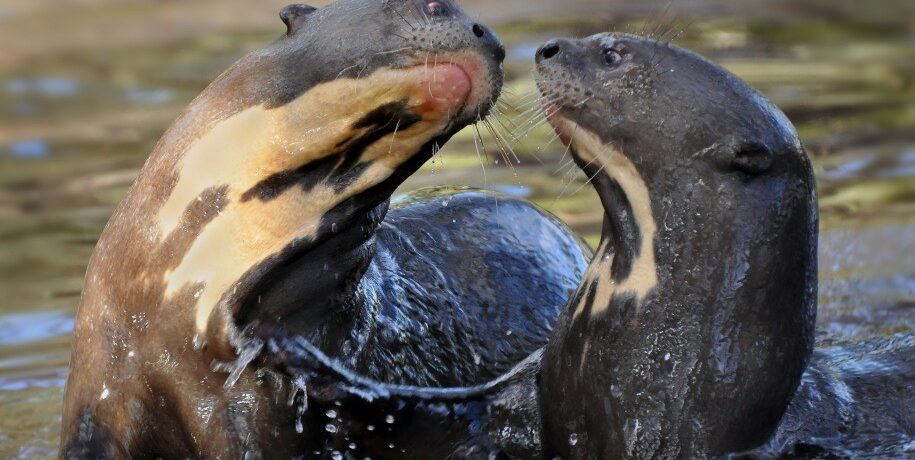Otters know when they are being watched – Visitor’ and ‘Observer’ Effect on Zoo-Housed Giant Otters
University Centre Sparsholt (UCS) lecturers James Brereton and Kerry Perkins along with alumni Edward Jones and keeper Connor McMillan have shed light on the potential effects that both ‘visitors’ and ‘observers’ have on zoo-housed Giant Otters.
The investigation, undertaken at the New Forest Wildlife Park, unearthed that although visitor presence has a minimal effect, observer presence has a significant impact on the otter’s response to its environment. The findings have even been published in the Zoo Biology journal.
Research for the study took place during 2020 as COVID-19 lockdown restrictions were easing. It was important for determining whether reduced footfall because of the pandemic had impacted the welfare of zoo-housed animals.
The behaviour and enclosure use of the otters was observed primarily by UCS graduate Edward Jones. Over a series of eighteen non-consecutive days, eighty hours of data was collected either by a human observer or cameras. This allowed the researchers to investigate while no one was present at the exhibits, a crucial part of the research. The whole New Forest Wildlife Park team kindly helped facilitate the research process.
The study focussed on four giant otters across two groups, one pair in an on-show enclosure and the other pair in an off-show enclosure. One particularly interesting observation was how a change in zone use differed between the individual otters, with the more dominant having priority use of the indoor zones when observers were present.
James Brereton, Animal Science and Zoo Biology degree lecturer at UCS and author on the paper said: “It is important that we understand how zoo animals respond to the humans that they are surrounded by as these ‘visitor effects’ might cause animals to act differently in the presence of people.”
“Our study demonstrates that the giant otters of the New Forest Wildlife Park showed only a minimal response to visitor presence. The study also demonstrated that the otters were more affected by observers – that is, an individual quietly watching their behaviour. When being observed, the otters tended to use their house more and their water pool less.”
“The exciting thing is that if these otters act differently when they know they are being watched, do other zoo animal species alter their behaviour when observers are present?”
Giant otters themselves remain rare in zoos and are classified as an endangered species due to being targeted by hunters for their fur and destruction of their natural habitat in the rainforests and wetlands of South America.
Read the full published article here.
